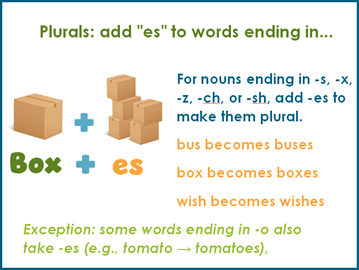Here are five essential spelling rules that can help improve spelling accuracy:
i before e, except after c
Rule: In words where the letters "i" and "e" appear together, "i" usually comes before "e" unless they come after the letter "c."
Example:
i before e: believe, relief, chief
except after c: receive, ceiling, deceive
Exceptions: There are some exceptions to this rule, such as weird, their, and either, so it’s important to remember that the rule doesn't always apply.
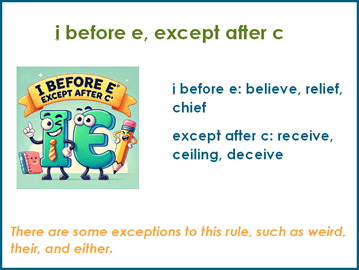
The silent e rule
Rule: A silent "e" at the end of a word usually makes the preceding vowel sound long (say its name).
Example:
tap becomes tape
mad becomes made
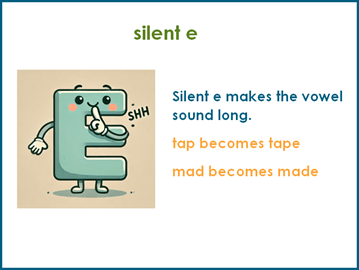
Adding Suffixes:
When adding a suffix that begins with a vowel (like -ing, -ed, or -able), drop the silent "e."
Example:
make → making
love → lovable
Double the final consonant when adding suffixes
Rule: When a one-syllable word ends with a single consonant preceded by a single vowel, double the final consonant before adding a suffix that begins with a vowel (like -ing, -ed, or -er).
Example:
hop becomes hopping
run becomes running
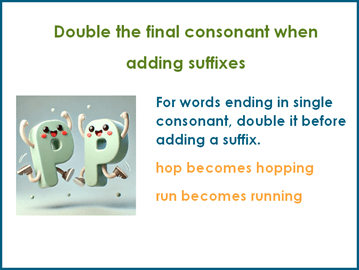
Exceptions: Don’t double the final consonant if the word ends in two consonants or the last syllable isn’t stressed (e.g., visit → visited).
Change y to i before adding suffixes
Rule: If a word ends in "y" preceded by a consonant, change the "y" to "i" before adding suffixes like -ed, -er, or -ly.
Example:
happy becomes happier or happiness
try becomes tried
Exception: When adding -ing, keep the "y."
Example: try becomes trying (not triing).
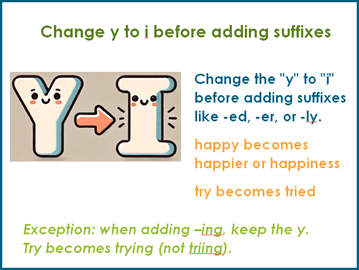
Plurals: add "es" to words ending in "s", "x", "z", "ch", or "sh"
Rule: For nouns ending in -s, -x, -z, -ch, or -sh, add -es to make them plural.
Example:
bus becomes buses
box becomes boxes
wish becomes wishes
Exception: Some words ending in -o also take -es (e.g., tomato → tomatoes), but not all (photo → photos).
